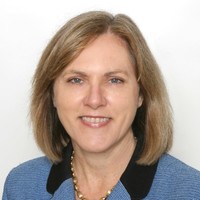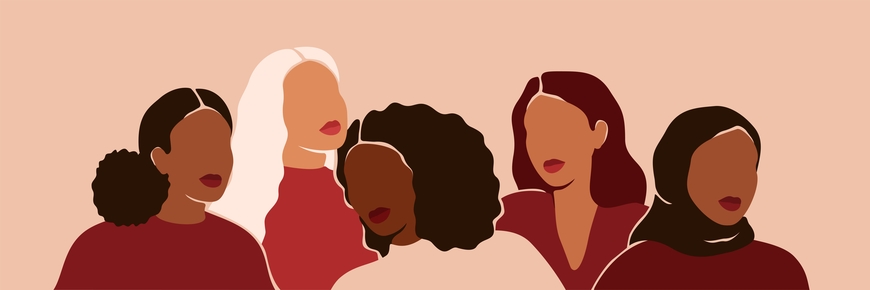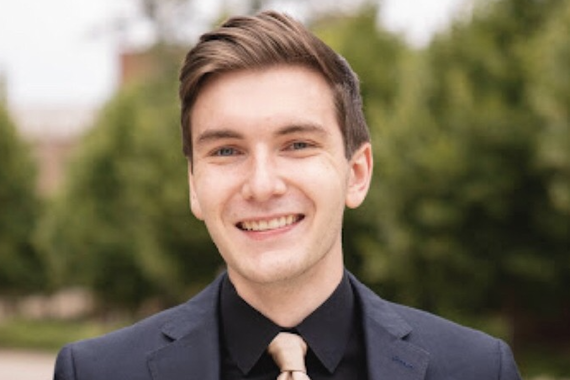Addressing the Gender Gap in Economics

Before she had a successful career in private equity investing, Carla Haugen was an economics and math major at the University of Minnesota. Haugen, BA 1976, recalls being one of only a few women in most of her classes. Reflecting back on her undergrad experience – and recognizing that she could offer some good advice to women following in her footsteps – she willingly volunteered to sign on as a mentor in the new Women in Economics program.
American women have been closing the college gender gap, slowly but surely, for decades. Following that trend, the University of Minnesota campus is now home to more undergraduate women than men. In Fall 2020, the Twin Cities undergraduate student body was 53 percent female and 47 percent male. Yet in certain fields, Economics included, there remains a striking difference.
The Department of Economics is home to more than 800 undergraduate majors, making it one of the largest programs in the College of Liberal Arts. Currently, only 31 percent of those students identify as female. With this in mind, department staff set out to create a pilot program to support female students and create a sense of community.
“We know, from meeting with dozens of students each week, that our female students are talented, motivated, and underrepresented in our program. Many voice concern about their ability to thrive in a field with so few women to look to as role models. We created this program to provide additional opportunities to develop leadership skills, explore career paths and provide one-on-one mentoring. And we hope this is just the start to our efforts to support diversity in our student body.” ~Annie Bigley, Academic Advisor
The original idea came to fruition as a year-long program that included mentoring, leadership development, and career exploration. In its inaugural year, the pilot program included 16 students, selected through a competitive application process. Through a mix of Saturday morning workshops (held virtually via Zoom this year), independent and group work, and mentor meetings, students learned from one another and most importantly, from alumni volunteers. Together, they delved into sometimes-sensitive professional topics – like navigating the challenges of working in a male-dominated workplace, being assertive and effective, and finding your unique leadership style. The year wrapped up with a case competition where teams gave presentations on increasing workplace equity for women.
Why focus on women?
Why does this matter? At every level of the Economics profession – tenured professors, newly-hired assistant professors, Ph.D. degrees awarded, newly-admitted graduate students – men far outnumber women. Addressing these disparities requires creative thinking about the pipeline of future faculty, researchers, policy advisers, and graduate students. And that pipeline is undergrads!
In the bigger picture, why does a diverse cohort of economists make a difference? Economists study real-world issues, reflecting how individuals and firms act and respond to changes in their environment. And the real world is full of diversity. Having researchers with varying backgrounds and perspectives – in any field – inherently adds a richness to the research questions and approaches. Economics is also a field that pays well, and this is one way to increase pay equity.
These are among the reasons why the American Economic Association, the primary professional organization for practicing economists, announced in 2020 that it would commit significant resources to increasing the diversity of the profession. Before being confirmed as the nation’s first female Treasury Secretary in 2021, Janet Yellen served as president of the AEA. In that capacity, she said, “Beyond fairness, the lack of diversity harms the field because it wastes talent. Individuals with the aptitude and interest to contribute to the field are discouraged from pursuing a career in economics. It also skews the field’s viewpoint and diminishes its breadth… Diversity is important in insuring that the research that is done within economics appropriately reflects society’s priorities.”
A valuable alumni network
The real success of the program was thanks to alumni women who volunteered their time, expertise, and advice. More than 20 alumni, representing a broad range of careers, served as mentors and speakers.
Carla Haugen served as both a mentor and speaker. “I benefited from an exceptional education in economics at the University of Minnesota, so I was thrilled to be part of the inaugural Women in Economics program,” she shared. “The program was extremely well organized, and my mentee Becca came to every one of our meetings well prepared with questions. Our allocated time flew by! The program offered an opportunity to build skills and learn to navigate a competitive and intellectually challenging environment.”

From her perspective, junior Becca Drusch couldn’t have asked for more. "The program helped me develop valuable leadership and teamwork skills and explore career opportunities. I am so grateful for my mentor Carla, who was generous with her time and advice. We met regularly to discuss the obstacles women in business face, and she was happy to answer my many professional and academic development questions. I always looked forward to our meetings as well as the workshops organized by the Economics Department,” Drusch reflected.
The long-term objective is simple: to increase the number of women in all facets of the Economics profession. But the short-term success for this year’s cohort, is equally valuable: these female students feel a personal sense of empowerment and confidence as they complete their undergraduate degree and transition into their professional lives. We anticipate many of these students will take on leadership roles wherever their careers take them.



